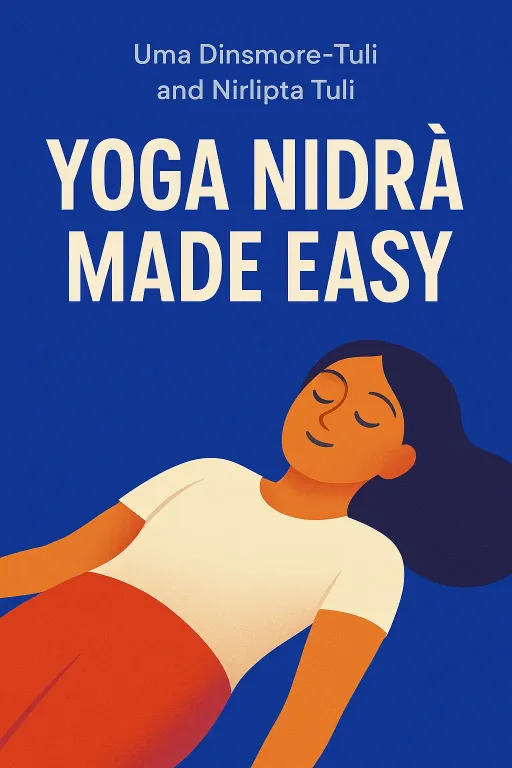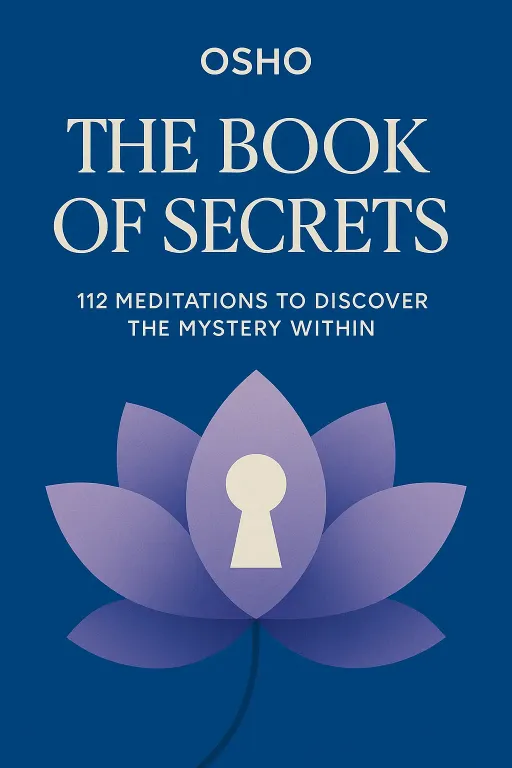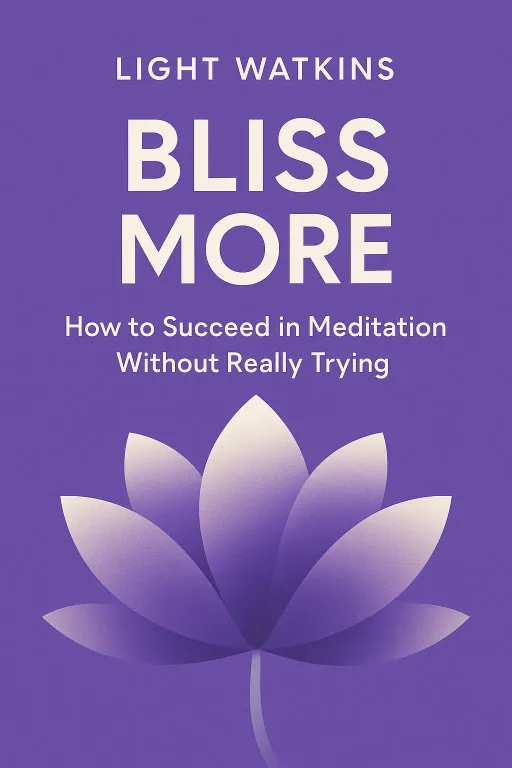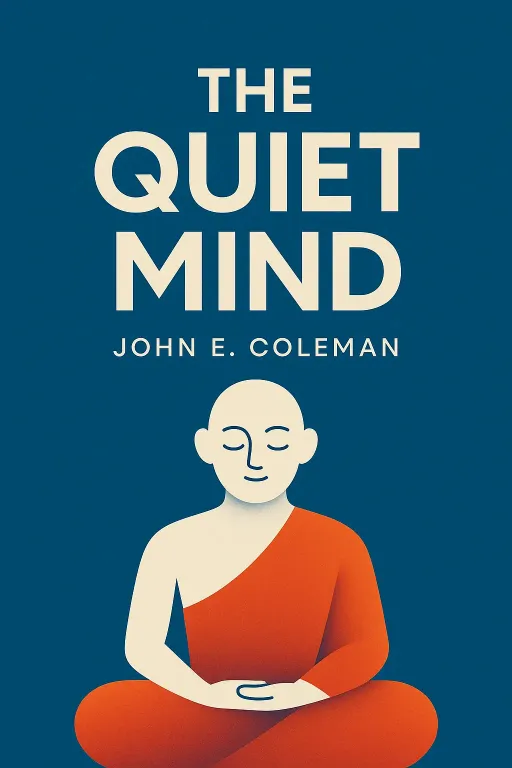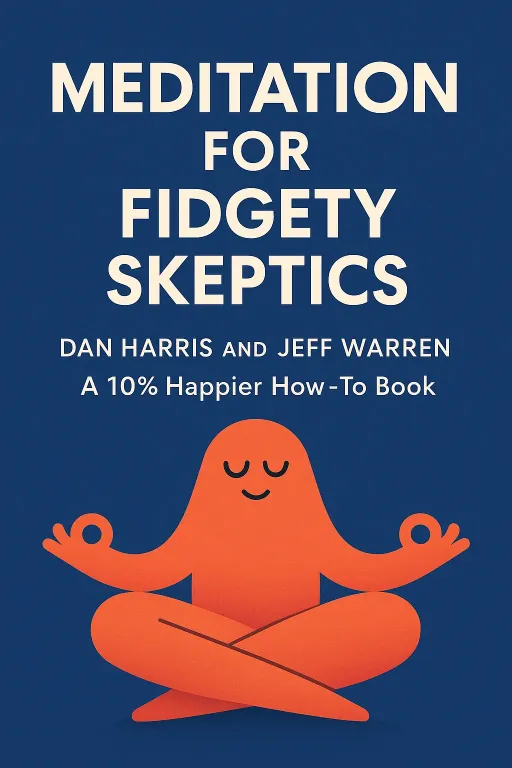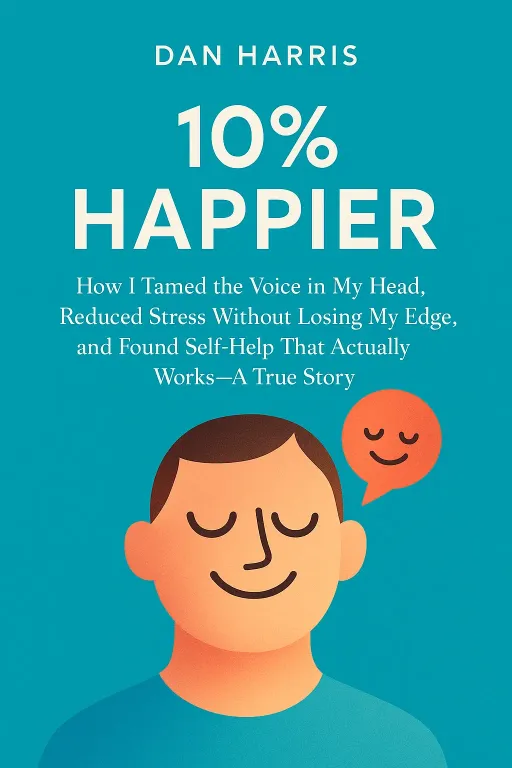
10% Happier
11 minHow I Tamed the Voice in My Head, Reduced Stress Without Losing My Edge, and Found Self-Help That Actually Works--A True Story
Introduction
Narrator: It’s June 7, 2004. Five million people are watching Good Morning America as news anchor Dan Harris begins his segment. He starts reading the headlines, but a few sentences in, his world begins to unravel. His heart hammers against his ribs. His lungs constrict, starving him of air. His vision blurs, the words on the teleprompter swimming into an incoherent mess. He’s having a full-blown panic attack on live, national television. This humiliating, terrifying moment wasn't a random fluke; it was the culmination of years spent chasing ambition, self-medicating with recreational drugs, and ignoring the relentless, critical voice in his head. This public breakdown became the unlikely catalyst for a journey he never intended to take. In his book, 10% Happier, Dan Harris chronicles his reluctant transformation from a cynical, high-strung newsman into a pragmatic proponent of a solution he once dismissed as nonsense: meditation.
The On-Air Collapse That Sparked a Reckoning
Key Insight 1
Narrator: Dan Harris’s career was built on a simple, brutal motto common in the news industry: “You’re only as good as your last story.” This philosophy fueled a relentless drive that took him from local news to the anchor desk at ABC, covering wars in Afghanistan and Iraq. But the adrenaline of war zones and the pressure of network television came at a cost. To cope with a creeping depression he developed after his time overseas, Harris turned to cocaine and ecstasy. He believed he could manage it, keeping his professional and personal lives separate. The on-air panic attack proved him catastrophically wrong. The incident forced him to confront the reality that his life was unsustainable. A doctor diagnosed him with depression and pointed out the obvious: his drug use was a primary trigger for his anxiety. This diagnosis was the first step on a long, skeptical search for a way to tame the voice in his head without losing his professional edge.
The Guru Gauntlet: A Skeptic's Frustrating Search for Answers
Key Insight 2
Narrator: Harris’s initial foray into the world of self-help was a journey through a landscape of what he considered well-meaning but ultimately unhelpful advice. He first encountered the work of Eckhart Tolle, whose book A New Earth diagnosed the problem of the ego—the incessant, judgmental narrator in our heads—with stunning accuracy. Harris recognized his own inner monologue in Tolle’s descriptions. However, Tolle’s solution, to simply “be aware” and “say yes to the present moment,” felt infuriatingly vague and impractical. How was one supposed to just be present when passed over for a major assignment? Next, he profiled Deepak Chopra, a titan of the self-help industry. Chopra claimed to live in a state of perpetual presence, yet Harris observed a man who seemed just as agitated and attached to his commercial empire as anyone else. This exploration of the self-help world, which also included investigating dangerous figures like James Arthur Ray, left Harris disillusioned. He found plenty of diagnoses for his problem but no practical, actionable prescription.
Finding a Foothold: How Ancient Wisdom Met Modern Skepticism
Key Insight 3
Narrator: Just as he was about to give up, Harris discovered the work of Dr. Mark Epstein, a psychiatrist and practicing Buddhist. Epstein’s writing presented Buddhism not as a mystical religion full of dogma, but as a practical, psychological system for understanding and working with the mind. Epstein, along with other Western interpreters often called "Jew-Bus" (Jewish-Buddhists), had stripped away the esoteric jargon and focused on the core mechanics. Harris was captivated. Here was a philosophy that acknowledged the reality of suffering and the tyranny of the ego, but offered a clear, logical path forward. Unlike Tolle, Epstein didn't make grand claims of effortless transformation. Instead, he offered a grounded, relatable perspective that resonated with Harris’s journalistic skepticism. This was the intellectual foothold Harris needed, a bridge between his cynical worldview and the ancient wisdom he was beginning to suspect might hold the key.
The Power of Negative Thinking: Redefining Meditation as Mental Exercise
Key Insight 4
Narrator: Armed with a new, more pragmatic understanding, Harris finally decided to try meditation. He attended a ten-day silent retreat, an experience he found both excruciating and transformative. For days, he battled physical pain, boredom, and a relentless storm of thoughts. His breakthrough came when he realized the goal of meditation wasn't to silence his mind—an impossible task—but to simply notice when his mind had wandered and gently bring it back to the breath. Each time he did this, he was performing a mental "bicep curl," strengthening his capacity for mindfulness. He learned that mindfulness is not about feeling calm or blissful; it's about observing your thoughts and feelings without judgment. This insight, which he calls "the power of negative thinking," reframes the practice. It’s not about escaping reality, but about seeing it more clearly. He also learned a simple, powerful question from his teacher, Joseph Goldstein, to deploy against his looping anxieties: "Is this useful?" This allowed him to distinguish between productive planning and pointless rumination.
Hiding the Zen: Reconciling Ambition with Equanimity
Key Insight 5
Narrator: Returning to the hyper-competitive world of ABC News, Harris faced a new challenge: how to integrate his practice without becoming passive. Initially, he confused "letting go" with "going soft," and his career began to stall. After being overlooked for several major stories, he had a frank conversation with his new boss, Ben Sherwood, who bluntly told him to "Stop being so Zen" and hustle more. That same night, Mark Epstein gave him the final piece of the puzzle with the advice to "Hide the Zen." In a corporate environment, overt serenity could be mistaken for a lack of drive. The real key, Epstein explained, was non-attachment to the results. It was perfectly fine to be ambitious, to strive, and to compete. The Buddhist part came in by not letting the outcome—whether success or failure—define his sense of self-worth. This allowed Harris to fight hard for assignments but to recover quickly from setbacks, giving him a new form of resilience.
The Self-Interested Case for Not Being a Dick
Key Insight 6
Narrator: Harris’s journey took another turn when he interviewed the Dalai Lama. He asked about the apparent conflict between the Buddhist ideal of compassion and the self-centeredness required to succeed. The Dalai Lama’s answer was startlingly pragmatic. He explained that practicing compassion is a form of "wise selfishness." Worrying about others, he argued, reduces our own self-centered anxiety and ultimately makes us happier. This wasn't a call for sainthood; it was a strategic life choice. Scientific research backs this up, showing that compassion can lower stress hormones, activate pleasure centers in the brain, and improve relationships. For Harris, this reframed compassion from a lofty, unattainable virtue into a practical skill with clear, self-interested benefits. It was the final element in building a more balanced, effective, and, yes, happier life.
Conclusion
Narrator: The single most important takeaway from 10% Happier is that happiness is not a destination to be reached or a prize to be won, but a skill that can be trained. It dismantles the all-or-nothing thinking that often surrounds self-improvement. Dan Harris didn't become an enlightened guru floating on a cloud of bliss; he became "10% happier"—a modest, achievable, yet profoundly life-altering improvement. The book’s power lies in its argument that you don't have to eradicate the critical voice in your head. You just have to learn to stop taking its orders.
The book’s enduring impact is its successful demystification of meditation for a generation of skeptics. It challenges us to reconsider our relationship with our own minds. What if the very thing we see as the biggest obstacle—the constant, chaotic chatter in our heads—is not a bug, but a feature? And what if learning to simply observe it, just for a few minutes a day, is the most practical and powerful thing we can do to navigate the chaos of modern life?
